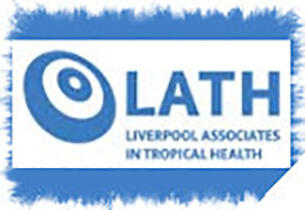
Liverpool Associates in Tropical Health (LATH), the consultancy arm of The Liverpool School of Tropical Medicine, is a partner in a new programme to reduce the impact of neglected tropical diseases. Funded by the United States.
Agency for International Development (USAID), the rapid impact disease control programme will treat more than 40 million people annually for five years.
The $100 million programme will be led by RTI International in partnership with LATH, the Sabin Vaccine Institute, the Schistosomiasis Control Initiative at Imperial College London and the International Trachoma Initiative. It will focus on the integrated control of seven of the most prevalent neglected tropical diseases which cause severe disability and death in some of the world's poorest countries including onchocerciasis (river blindness), schistosomiasis (snail fever) and lymphatic filariasis (elephantiasis). Drawing on the expertise and networks of the Liverpool School , LATH will provide key technical and managerial staff in Liverpool and Washington to support project implementation as well as sourcing and managing short-term technical assistance to the programme.
Professor David Molyneux, Senior Project Adviser to LATH and Director of the School's Lymphatic Filariasis Support Centre in Liverpool said: "We are very pleased that the US Agency for International Development is supporting this important initiative. I suspect many people in developed nations would be surprised that these diseases can be treated for less than 30 pence per person. Taken together these diseases represent a burden as big as malaria. By integrating our efforts with those of our partners, we can make a significant impact by preventing massive disability and the attendant poverty that these diseases cause."
The project is one of the first large-scale efforts to integrate existing disease treatment projects into a single programme of mass drug distribution using just a few drugs to target several diseases at the same time. As well as achieving cost savings, the programme will enhance the effectiveness and efficiency of single disease projects by integrating treatment, monitoring and evaluation programs. The drugs for the programme are being supplied free of charge by major pharmaceutical companies, some for as long as they are needed.
Alan Fenwick, project director for RTI International said: "Because many of these tropical diseases occur in the same areas and affect the same populations, distributing safe treatments for them will be more effective and cost efficient and will help make a substantial impact toward achieving the Millennium Development Goal of combating HIV/AIDS, malaria and other diseases.”
Professor Peter Hotez, alternate technical director, said he is confident that many of these diseases can be eradicated: “If the selected treatments are administered annually in these counties over a five-year period, the infections will gradually be reduced until the diseases are eliminated.”
“Neglected diseases are a huge burden,” said Richard Greene, director of the Office of Health, Infectious Disease and Nutrition at USAID. “This significant investment will improve the lives of millions of people afflicted with disabling conditions through effective, low-cost, mass drug administration and associated education programs.”
-ends-
For more information, please contact
Eileen Taylor, Press Officer
Office: +44 (0)1704 876024
Mobile : +44 (0)7786 613604